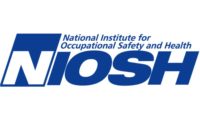by Robert Harrison, MD, and Sarah Jacobs, MPH
The Occupational Health Internship Program (OHIP) is dedicated to helping students learn about the field of occupational safety and health (OSH) from the perspective of working people. OHIP has played a crucial role in training, mentoring, and inspiring a new generation of OSH professionals as well as providing worker community based organizations the resources to strengthen their health and safety efforts. As highlighted in the 2011 NIOSH needs assessment report, OHIP is helping to prepare a new generation of specialists to meet the ongoing need for trained, dedicated talent in occupational safety and health.
OHIP is housed within the Association of Occupational and Environmental Clinics (AOEC) and in 2016 had training sites in the San Francisco Bay Area, Los Angeles, Chicago, Boston, New York City, New Orleans, Metro Washington, DC area, Lincoln, NE, Medford, OR, and Tulsa, OK. The summer program is open to undergraduate and graduate students. Ongoing training grant support has been provided by NIOSH since 2008. Many other organizations have provided financial support for the program, including the California Wellness Foundation, the California Department of Public Health Occupational Health Branch, the National Institute of Environmental Health Sciences – Worker Education and Training Program, CPWR-The Center for Construction Research and Training, the University of California, Berkeley Center for Occupational and Environmental Health, the University of California, Los Angeles Center for Occupational and Environmental Health, the Council of State and Territorial Epidemiologists, The Kazan Foundation, and the Steve M Levin Scholarship Fund.
Students are placed with a worker or community based organization on projects that investigate job-related health and safety problems among workers, often of new immigrant groups, employed in an under-served or a high hazard job. Projects are designed to maximize contact between workers and students. Through this process, students gain a better understanding of the complexity of the work environment from the workers’ perspective. At the same time, the program empowers workers and strengthens their investigative and technical skills. As a relationship of trust is built between students and workers, both gain a better understanding of the underlying political and economic forces that contribute to job conditions.
At the end of the project, teams provide a “give back” product to the workers and their “host” worker or community based organization, present their summer project at a NIOSH national videoconference, and produce a final report. Selected projects are presented each fall at the annual meeting of the American Public Health Association.
The 2016 projects included:
- Improving working conditions for Latino Forest Workers in Southern Oregon (National Forest Worker Center, Medford Oregon)
- Hazards of working with a jackleg drill in mining and tunneling (UC Ergonomics Program & CA Department of Public Health Occupational Health Branch, San Francisco Bay area)
- Assess workplace experiences of retail employees and educate them about their rights in the workplace
- (Chinese Progressive Association, San Francisco Bay area
- Investigate employer safety practices in temporary, low- wage work (The Chicago Workers’ Collaborative, Chicago, IL)
Working with immigrant Latino day laborer workers centers to...Click here to read the rest of the blog post.








